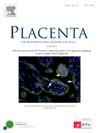An overview of periconceptional pathology and pathophysiology: Where do we go next?
IF 3
2区 医学
Q2 DEVELOPMENTAL BIOLOGY
引用次数: 0
Abstract
It is becoming increasingly evident that studies of pregnancy and pregnancy complications must begin earlier in pregnancy than has typically been the case. Important events with effects through and beyond pregnancy take place in the periconceptional period, from shortly before to shortly after conception. During this time ovarian hormones act not only to facilitate successful implantation but also direct maternal physiological adaptations necessary for pregnancy. Decidua also undergoes changes necessary for successful implantation of the embryo. These involve not only maternal preparation of a receptive site for implantation but interactions, including immunological and others, of cells of the maternal decidua and embryo. All of this occurs in a setting in which the cells of the embryo are involved in complex epigenetic changes. Assisted reproductive technology (ART) has the potential to influence many of these since ART typically occurs at this time of these epigenetic change. Many of the variables involved in ART have the potential to influence epigenetic adaptation. In fall of 2023 the Global Pregnancy Collaboration brought together experts in these areas to consider the status of our understanding of the periconceptional period. This manuscript presents an update of this information including new approaches to study these very early events. The potential impact of ART on periconceptional events and the mechanisms involved are presented. Based upon this information recommendations are made for future research in these important areas.
感知病理学和病理生理学综述:我们下一步要做什么?
越来越明显的是,怀孕和妊娠并发症的研究必须在怀孕早期开始,而不是通常的情况。在怀孕期间和怀孕后产生影响的重要事件发生在围孕期,从受孕前不久到受孕后不久。在此期间,卵巢激素的作用不仅是促进成功着床,而且还指导母亲怀孕所需的生理适应。蜕膜也经历了胚胎成功着床所必需的变化。这不仅包括母体为着床准备一个接受部位,还包括母体蜕膜细胞和胚胎的免疫和其他相互作用。所有这些都发生在胚胎细胞参与复杂的表观遗传变化的环境中。辅助生殖技术(ART)有可能影响其中的许多,因为ART通常发生在这些表观遗传变化的这个时候。ART中涉及的许多变量都有可能影响表观遗传适应。2023年秋季,全球妊娠合作组织召集了这些领域的专家,讨论了我们对围孕期的理解状况。这份手稿介绍了这些信息的更新,包括研究这些非常早期事件的新方法。介绍了抗逆转录病毒治疗对感知事件的潜在影响及其机制。根据这些信息,对这些重要领域的未来研究提出了建议。
本文章由计算机程序翻译,如有差异,请以英文原文为准。
求助全文
约1分钟内获得全文
求助全文
来源期刊

Placenta
医学-发育生物学
CiteScore
6.30
自引率
10.50%
发文量
391
审稿时长
78 days
期刊介绍:
Placenta publishes high-quality original articles and invited topical reviews on all aspects of human and animal placentation, and the interactions between the mother, the placenta and fetal development. Topics covered include evolution, development, genetics and epigenetics, stem cells, metabolism, transport, immunology, pathology, pharmacology, cell and molecular biology, and developmental programming. The Editors welcome studies on implantation and the endometrium, comparative placentation, the uterine and umbilical circulations, the relationship between fetal and placental development, clinical aspects of altered placental development or function, the placental membranes, the influence of paternal factors on placental development or function, and the assessment of biomarkers of placental disorders.
 求助内容:
求助内容: 应助结果提醒方式:
应助结果提醒方式:


